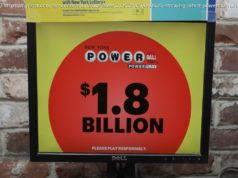Here’s what you need to know to start your day.
Good morning.
Here’s what you need to know:
• A Republican congressman, Steve Scalise, was in critical condition after he and three other people were shot by a lone gunman at a baseball practice in Virginia.
“There was so much gunfire, you couldn’ t get up and run, ” said Representative Mike Bishop of Michigan, who was among the lawmakers practicing for an annual charity baseball game.
President Trump said the gunman, James Hodgkinson, had died after being shot at the scene. Mr. Hodgkinson, his brother said, had been distraught over the election of Mr. Trump. Here’s what we know.
In San Francisco, a gunman fatally shot three people, and then himself, at a United Parcel Service sorting hub.
_____
• “I have never, ever seen anything of this scale.”
That was London’s fire brigade chief speaking in the aftermath of an inferno that killed at least 12 people early Wednesday as it consumed a 24-story high-rise apartment block.
By evening in London, firefighters were still searching for victims and working to extinguish the remnants of the blaze.
The cause is still under investigation. Here are the latest details.
_____
• North Korea’s treatment of Otto Warmbier, the 22-year-old American student released in a coma this week, may have been unusually brutal.
Though Americans have been kept in terrible conditions in the repressive country, they are generally not physically abused. But an American official said intelligence reports suggest that Mr. Warmbier was repeatedly beaten.
The question now is why. Mr. Warmbier is being treated at a hospital in Cincinnati, and details on his conditions are not yet known.
_____
• The questions surrounding China’s detention of Wu Xiaohui, the billionaire chairman of Anbang Insurance, continue to multiply.
Anbang had often danced around Beijing’s mostly unwritten business rules, our correspondents point out, from its multibillion-dollar takeover bids to its effort to court Donald Trump’s son-in-law, Jared Kushner.
_____
• The Australian government tentatively offered to pay 70 million Australian dollars plus legal costs to settle a class-action lawsuit representing 1,905 asylum seekers held in offshore detention centers.
The lawyer for the asylum seekers called the settlement, in a case which sought damages for physical and psychological injuries and for false imprisonment, one of the largest ever in an Australian human rights case.
_____
• And bunya-bunya, saltbush, wattle seeds and jumbuck.
If those terms don’ t do much to whet your appetite, join our food editor in Melbourne as he explores the culinary vocabulary of Ben Shewry, a New Zealander who has become one of Australia’s most celebrated chefs.
Above, whipped emu egg with sugar bag.
• The Federal Reserve raised its benchmark rate to a range between 1 percent and 1.25 percent. It is the Fed’s third consecutive quarterly increase, reflecting its confidence in the stability of the economic expansion. Above, Janet Yellen, the Fed chairwoman.
• Japan has seen a resurgence of gold smuggling. Arrests have jumped 40-fold in just a few years, and culprits range from hardened criminals to housewives.
• Inspectors in northern China found that nearly 14,000 companies, or 70 percent of the businesses they examined, failed to meet environmental standards for air pollution.
• A Hong Kong businessman paid $664,260 for a parking space .
• U. S. stocks were mixed. Here’s a snapshot of global markets.
• American troops are in the southern Philippine city of Marawi, where the military is battling Islamic State-linked militants, a Philippine official said, adding that U. S. forces had no combat role. [The New York Times]
• In Singapore, many have been shocked by a public feud between the prime minister and his siblings over the legacy of their father, Lee Kuan Yew. [The New York Times]
• Crown Prince Naruhito of Japan promised to devote his “whole being” to his role as emperor, in his first public address since the passage of a law allowing Emperor Akihito to abdicate. [The Asahi Shimbun]
• In Hong Kong, biologists say an airport expansion will threaten the survival of the area’s Chinese white dolphins. [The New York Times]
• An aid organization found that people were more likely to donate to victims of the 2011 Japanese tsunami than to those fleeing the war in Syria. It blamed bad marketing. [The New York Times]
• “Snowflake” has become America’s catchiest political insult of the year. But our writer finds that people who use it seem to be aggrieved themselves. [The New York Times]
• Australian native wildflowers, notably the eucalyptus tetragona, are a trendy obsession for florists and design stores in Japan. [ABC]
• Fending off math anxiety begins with talking to children at an early age about numbers in everyday life.
• Want more Smarter Living? Sign up for the weekly newsletter here .
• Recipe of the day: If you’ re craving Greek, pork gyros with tzatziki sauce is the dinner you need.
• Our foreign affairs columnist, Thomas Friedman, went to Seoul, where he found America is the odd man out in the crisis over North Korea. U. S. policy, he said, is like “waiting for a horse to sing.”
• In a sleepy town in the Norwegian Arctic, a U. S.-funded radar system is being built to spy on Russia’s nuclear submarines in the region as climate change opens up shipping routes and resources.
• And our Vietnam’ 67 series looks back at the Monterey Pop Festival, arguably the greatest music festival in American history. But it was even more significant as the signal moment of the “Summer of Love.”
The 117th edition of the U. S. Open begins today — but golf has been around much longer.
Scotland is often credited with inventing the game. A 1457 parliamentary resolution, which banned golf for distracting from military defense training, appears to be the first recorded reference.
But a German historian, Heiner Gillmeister, an author of the Encyclopaedia Britannica entry for golf, has argued that a version of the game was first played on continental Europe .
That game was likely the Dutch colf, which some scholars say influenced golf and was even played in the U. S. Hendrick Avercamp’s painting from 1626, “Winter Games on the Frozen River IJssel, ” above, depicts the hockey-like game.
The Chinese, too, claim golf. Specifically, via chuiwan — literally “hit ball.






